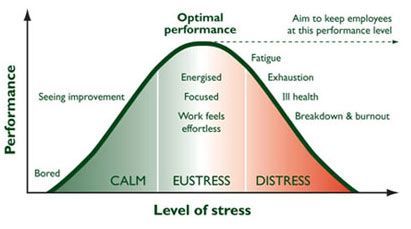
Skill-Based Assessments
Adaptive Behavior
Adaptive Behavior Functional Checklist
Adaptive Functioning Skills (5 to 10) (11+)
Life Skills Checklist by Christine Fields (4 to 7) (8 to 12) (13 to 15) (16 to 18)
School and Community Social Skills Rating Checklist
Systematic Adaptive Behavior Characteristics Checklist (Birth to 5) (6 to 13) (14 to 21)
Systematic Observations for Adaptive Behavior (Birth to 5) (6 to 13) (14 to 21)
Transition Skills Guidelines (for Students with Hearing Loss)
Autism Spectrum
Autism Team Questions (Elementary) (MS to HS)
Behavior and Communication Questionnaire
Challenging Behaviors for an ASD Student
Dyssemia Rating Scale (DRS) – School Screening
M-CHAT
Moving Toward Functional Social Competence
Vocational Evaluation Checklist for an Individual with Autism
Behavior
Behavior Checklist
Behavior Input Form (Parent) (Teacher)
Informal Behavior Assessment
Organizational and Independent Skills (Instructions) (PK/K) (Elem) (MS/HS)
PRIM-3 Behavior Checklist
Skill-Based Behavior Rating Scale
Early Childhood
Child Skills Checklist
Developmental Checklist (1 to 3 months) (4 to 7 months) (8 to 12 months) (12 to 24 months)
Developmental Checklist (2 to 3 years) (3 to 4 years) (4 to 5 years)
Developmental Milestones (12 months) (18 months) (Age 2) (Age 3) (Age 4) (Age 5)
Early Childhood Self-Care Checklist
Kindergarten Readiness Checklist
PK to Kindergarten Academic Skills (Assessment) (Tally Sheet)
Preschool Sequence Academic Checklist
Listening Comprehension and Oral Expression
Informal Progress Monitoring for Listening Comprehension and Oral Expression
Norms for Listening Comprehension and Oral Expression
Teacher Checklist for Listening Comprehension
Teacher Checklist for Oral Expression
Unpacked Standards – Listening, Viewing, and Speaking: K, 1, 2, 3, 4, 5, 6, 7, 8, 9, 10, 11, 12
Math
Assessing Performance in Problem Solving (Checklist) (Frequency Chart)
Basic Math Test (K) (1) (2) (3) (4) (5) (6) (7) (8) (K – 6 Answer Key and Task Analysis)
Informal Math Probe (1) (2) (3) (4) (5) (6) and Answers (1) (2) (3) (4) (5) (6)
Skill-Based Math Checklist (K) (1) (2) (3) (4) (5)
West Virginia ABE Skills Checklist – Math
Occupational Therapy and Physical Therapy
Assessment of Functional Skills in the Educational Environment
Feeding Developmental Milestones
Fine Motor / Visual Motor Developmental Milestones
Functional Mobility / Self-Help Assessment
Gross Motor Developmental Milestones
Handwriting Assessment
Home Environment Information
Input Checklist for PT-OT
Personal Care Developmental Milestones
PT-OT Skill-Based Ideas
Release and Grasp Developmental Milestones
Transportation Assessment
Wheelchair Assessment
Reading
Fry Word Lists
Reading Comprehension Checklist
Reading Fluency Teacher Rating
Reading Fluency Verbage for Present Levels
West Virginia ABE Skills Checklist – Reading
Social Skills
Nonverbal Communication Milestones
Observation Profile for Social Skills
Social Communication Skills – the Pragmatics Checklist
Social/Emotional Assessment
Speech-Language Pathology
Functional Language Checklist
Nonacademic Adverse Effects of Speech Impairment
Nonverbal Skill-Based Assessment
Orion’s Pragmatic Language Skills Questionnaire
Pragmatics Checklist
Speech and Articulation Development Chart
Speech-Only Referral Form
Teacher Input – Articulation
Teacher’s Rating Scale – Pragmatic Language Evaluation
Voice Evaluation
Transition
Adolescent Autonomy Checklist
Assessment of Financial Skills and Abilities
Career Clusters Interest Survey
Consent to Invite Outside Agency
Independent Living Assessment
Life Skills Inventory
Quickbook of Transition Assessments
Self-Determination / Self-Advocacy Checklist
Self-Determinationf Self-Assessment
Social and Vocational Abilities Listing
Student Transition Interview Form
Vocational Behavior Evaluation
Written Expression
6 + 1 Writing Rubric (K-2) (3-12)
Skill-Based Writing Inventory (K-6) (7-12)
Qualitative Features of Writing Checklist
WE-CBM Error Tracking Checklist
West Virginia ABE Skills Checklist – Writing


